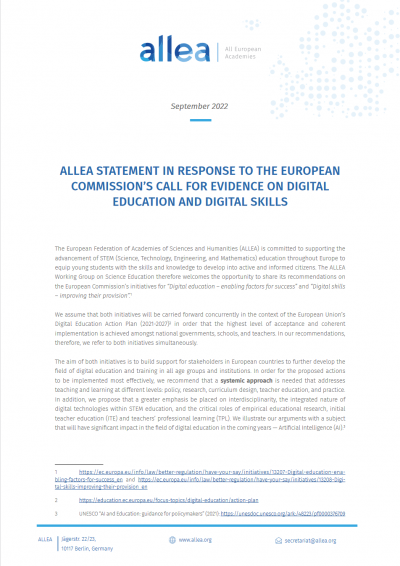


The European Commission recently issued two calls for ideas and evidence on ensuring equal access to digital education and promoting digital skills. The feedback will be used in the preparation of a Commission proposal for a Council Recommendation on the enabling factors for successful digital education and for one on improving the provision of digital skills in education and training. The proposals are part of the Commission’s initiatives under the European Union’s Digital Education Action Plan (2021-2027).
In response to this call, ALLEA’s Working Group on Science Education, with Professor Timo Leuders as principal author, prepared a statement with recommendations on improving inclusivity in digital education and the effective provision of digital skills, built on a robust foundation of scientific evidence.
The statement contends that a systemic approach that addresses teaching and learning at different levels – policy, research, curriculum design, teacher education, and practice – is necessary for the proposed actions to be implemented efficiently and effectively. The statement also calls for greater emphasis to be placed on interdisciplinarity, the integrated nature of digital technologies within STEM education, and the critical roles of empirical educational research, initial teacher education (ITE) and teachers’ professional learning (TPL).
Some recommendations from the statement are highlighted below:
The ALLEA statement encourages the European Commission to support national governments and individual teachers by identifying best practices in digital education across Europe so that they have access to an evidence-based roadmap towards a technology-driven educational landscape.
You can read the statement by the ALLEA Working Group on Science Education in full here.
Read more about the ALLEA Working Group on Science Education and its members here.
